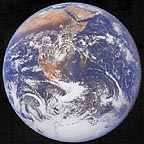
Most of the world's water crises can be resolved, but it would require political will and spending from $50 billion to $100 billion a year, the United Nations' top envoy on water issues said recently.
U.S. Water News Online (www.uswaternews.com) reports that Gordon Young, coordinator of the Paris-based U.N. World Water Assess-ment Program, warned that crises ranging from contaminated drinking water to polluted rivers and ground water reserves threaten the lives of tens of thousands of people every single day.
According to U.N. statistics, more than 200 million people every year suffer from water-related diseases and about 2.2 million of them – mostly the poor – die. About 20 percent of the earth's population of 6 billion currently lacks access to safe drinking water.
“If we were to take relatively small amounts of extra money, we could more or less solve most of the world's water problems,” Young told a news conference at the Foreign Correspondents Club of Japan. “The difficulty is having the political will to do it.”
Young, who was in Tokyo to present the 600-page U.N. World Water Development report ahead of the Third World Water Forum in Kyoto, said the scale of the problem is enormous.
To reach the United Nations' goal of halving the number of people without access to water for nourishment and hygiene by 2015, 270,000 people would have to be provided with safe drinking water and 340,000 people would have to see improvements in sanitation every day, Young said.
In the report, the United Nations predicted that as many as 7 billion people in 60 countries could be facing a water shortage by 2050 – when the global population is expected to reach 9.3 billion – as climate changes aggravate droughts or increase rainfall and temperatures.
As natural sources are tapped to near limits, international conflicts over water rights may boil over, the report said.
Disagreements over water underlie the hostilities between states, from the Tigris and Euphrates rivers in the Middle East to the Colorado River in the United States and Mexico to the Nile River, which runs through nine African countries, said Young.
The U.N. report also divides countries into those with water resources and those without.
Kuwait, the Gaza Strip, the United Arab Emirates, the Bahamas and Qatar have the least fresh water reserves per person among 180 countries and territories assessed, and – with the exception of the U.S. state of Alaska and Denmark's Greenland – French Guiana, Iceland, Guyana, Suriname and Congo have the most.
Report Abusive Comment